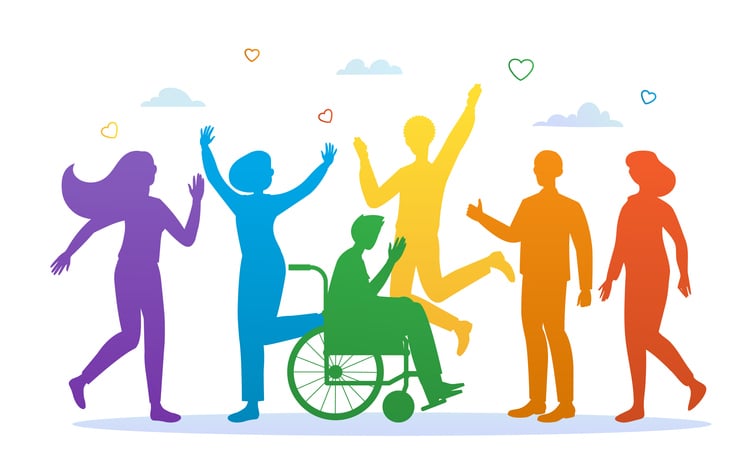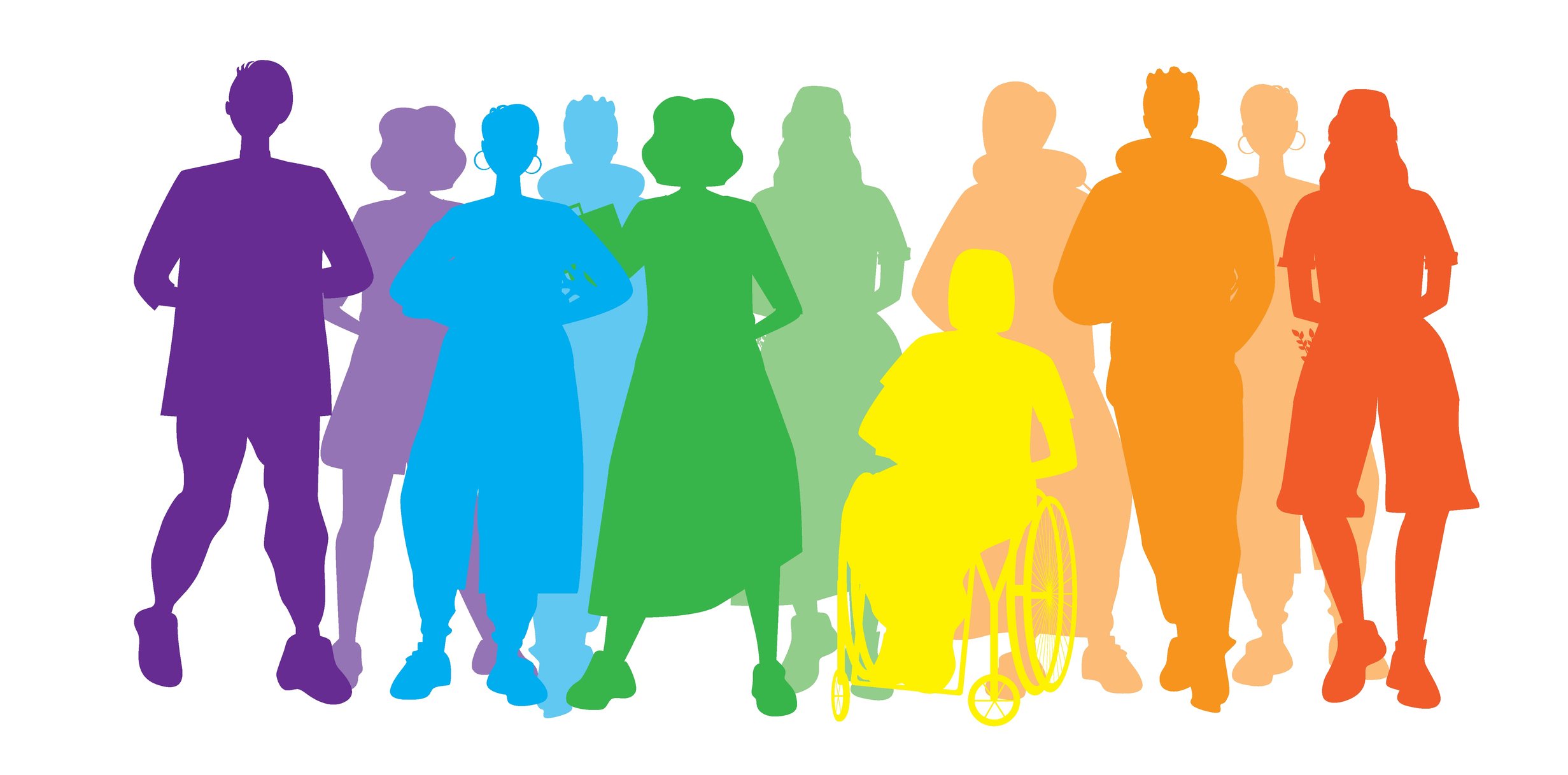As Pride Month illuminates the vibrant spectrum of the LGBTQ+ community, it's a crucial time to reflect not only on the progress made but also on the ongoing journey toward equity in healthcare. Within the diversity of Nursing, LGBTQ+ individuals are not just caregivers; they are pioneers, advocates, and a vital force shaping a more inclusive and compassionate healthcare system. This article delves into the experiences of LGBTQ+ Nurses, sheds light on the challenges they face, and explores the policies and initiatives hospitals are implementing to foster affirming environments for both employees and patients.
Voices from the Front Lines: Personal Accounts
These personal accounts of LGBTQ+ Nurses reveal a complex landscape of triumphs and tribulations. While many have found supportive communities within their workplaces, others continue to navigate subtle biases or outright discrimination.
"When I first started Nursing almost two decades ago, being openly gay felt like a liability," shares Maria, a seasoned emergency room Nurse in California. "I learned quickly to keep my personal life separate from my professional one. It was exhausting, constantly self-editing and worrying if disclosing my partner would change how my colleagues or patients perceived me, or even worse, how it might impact my career progression."
Maria's experience echoes a sentiment shared by many LGBTQ+ Nurses who entered the profession when anti-LGBTQ+ prejudices were more overt. The fear of discrimination often led to self-censorship, impacting their ability to bring their whole selves to work.
However, younger generations of Nurses are increasingly open. "I came out as non-binary in Nursing school, and while it was nerve-wracking, I felt a responsibility to be authentic," says Alex, a new graduate working in a pediatric unit. "My unit has been incredibly supportive. My manager made sure my preferred pronouns were used in all communications, and they even organized a 'pronoun workshop' for the whole team. It makes a huge difference in feeling seen and respected."
Yet, challenges persist. Some Nurses still encounter discrimination from colleagues or even patients. "I had a patient's family member refuse my care after overhearing me mention my husband," recounts David, an ICU Nurse in a rural hospital. "It was upsetting, but my charge Nurse immediately stepped in and reassigned me to another patient, reassuring me that their behavior was unacceptable. That kind of leadership support is everything."
These accounts underscore the critical need for a culture of understanding and acceptance, not just on paper, but in everyday interactions.
The Impact of Discrimination
When LGBTQ+ Nurses face discrimination, it's not just a personal slight; it has broader implications for patient care and the overall healthcare environment. Studies have shown Nurses in hospitals with high LGBTQ+ inclusion reported lower burnout, reduced job dissatisfaction, and better care quality. Conversely, a lack of inclusive policies can lead to stress, anxiety, and even lead to Nurses leaving their positions.
Beyond the individual impact, discrimination can also affect the quality of care provided to LGBTQ+ patients. If Nurses feel unsafe or unacknowledged in their own identities, it can inadvertently hinder their ability to create truly safe and affirming spaces for their patients who share similar experiences.
Building a Foundation of Inclusivity
Recognizing the role of an inclusive workforce, and the direct link to patient outcomes, many hospitals are actively implementing policies and initiatives to promote LGBTQ+ employees and patients. These efforts often align with frameworks like the Human Rights Campaign Foundation's Healthcare Equality Index (HEI), which assesses healthcare facilities on their LGBTQ+ inclusivity.
Key policies and initiatives include:
- Non-Discrimination Policies: Hospitals are increasingly adopting comprehensive non-discrimination policies that explicitly include sexual orientation, gender identity, and gender expression for both employees and patients. These policies serve as a foundational commitment to equality.
- Inclusive Benefits: Offering inclusive benefits, such as health insurance coverage for gender-affirming care, domestic partner benefits, and parental leave policies that recognize diverse family structures, signals a genuine commitment to LGBTQ+ employees' well-being.
- Employee Resource Groups (ERGs): Many institutions are fostering LGBTQ+ employee resource groups (ERGs) or affinity groups. These groups provide a safe space for support, networking, and advocacy, and often serve as valuable resources for the hospital's leadership in developing more inclusive policies and practices. Boston Children's Hospital, for example, has a "Rainbow Alliance" that works to streamline support and services for LGBTQ+ staff, patients, and families.
- Cultural Competency Training: Mandatory and ongoing cultural competency training for all staff is paramount. This training goes beyond basic awareness to address unconscious biases, provide education on LGBTQ+ health disparities, and equip Nurses with the skills to use affirming language, collect accurate demographic data (including sexual orientation and gender identity), and provide individualized, respectful care.
- Gender-Affirming Facilities: Ensuring access to gender-neutral restrooms and providing clear signage for inclusive facilities promotes comfort and safety for transgender and gender-non-conforming individuals.
- Patient Intake and EHR Systems: Hospitals are revising patient intake forms and electronic health record (EHR) systems to allow for the accurate and respectful collection of preferred names, pronouns, sexual orientation, and gender identity. This data is crucial for providing personalized care and identifying health disparities.
- Visibility and Communication: Displaying visible signs of allyship, such as Pride flags, safe space stickers, and pronoun badge buddies, signals to both employees and patients that the institution is committed to inclusivity. Publicizing non-discrimination policies on websites and in patient waiting areas also reinforces this message.
- Community Partnerships: Collaborating with local LGBTQ+ community organizations and health centers helps hospitals understand the unique needs of the community and build trust.
The Way Forward: A Call to Action for Nursing
The journey toward full LGBTQ+ equity in Nursing and healthcare is ongoing. As Nurse writers, educators, and practitioners, we have a profound responsibility to continue advocating for change. This means:
- Championing Inclusive Education: Integrating LGBTQ+ health and cultural competency into Nursing curricula and continuing education programs is essential to prepare future generations of Nurses.
- Advocating for Policy Change: Nurses should actively participate in advocating for local, state, and national policies that protect LGBTQ+ individuals from discrimination in healthcare and employment.
- Fostering a Culture of Allyship: Beyond policies, creating a truly inclusive environment requires active allyship from all healthcare professionals. This includes speaking up against discrimination, educating colleagues, and being a visible source of support for LGBTQ+ patients and peers.
- Supporting LGBTQ+ Nursing Organizations: Organizations like GLMA (Health Professionals Advancing LGBTQ+ Equality) provide invaluable resources, advocacy, and a community for LGBTQ+ Nurses and their allies. Supporting these groups strengthens the collective voice for change.
By embracing diversity, celebrating the contributions of LGBTQ+ Nurses, and actively working to dismantle barriers, the Nursing profession can truly live up to its ethical imperative to provide compassionate, equitable, and high-quality care to all. The vibrant spirit of Pride Month serves as a powerful reminder of this vital mission.


 Nurses must always be prepared to care for patients from all backgrounds, including the LGBTQ+ community. Caring for the LGBTQ+ community requires an educated, compassionate, and inclusive approach. As Nurses, we ensure every patient receives the most personalized and competent care possible. Here are some tips to help you provide better care to the LGBTQ+ community.
Nurses must always be prepared to care for patients from all backgrounds, including the LGBTQ+ community. Caring for the LGBTQ+ community requires an educated, compassionate, and inclusive approach. As Nurses, we ensure every patient receives the most personalized and competent care possible. Here are some tips to help you provide better care to the LGBTQ+ community. LGBTQ+ Pride
LGBTQ+ Pride